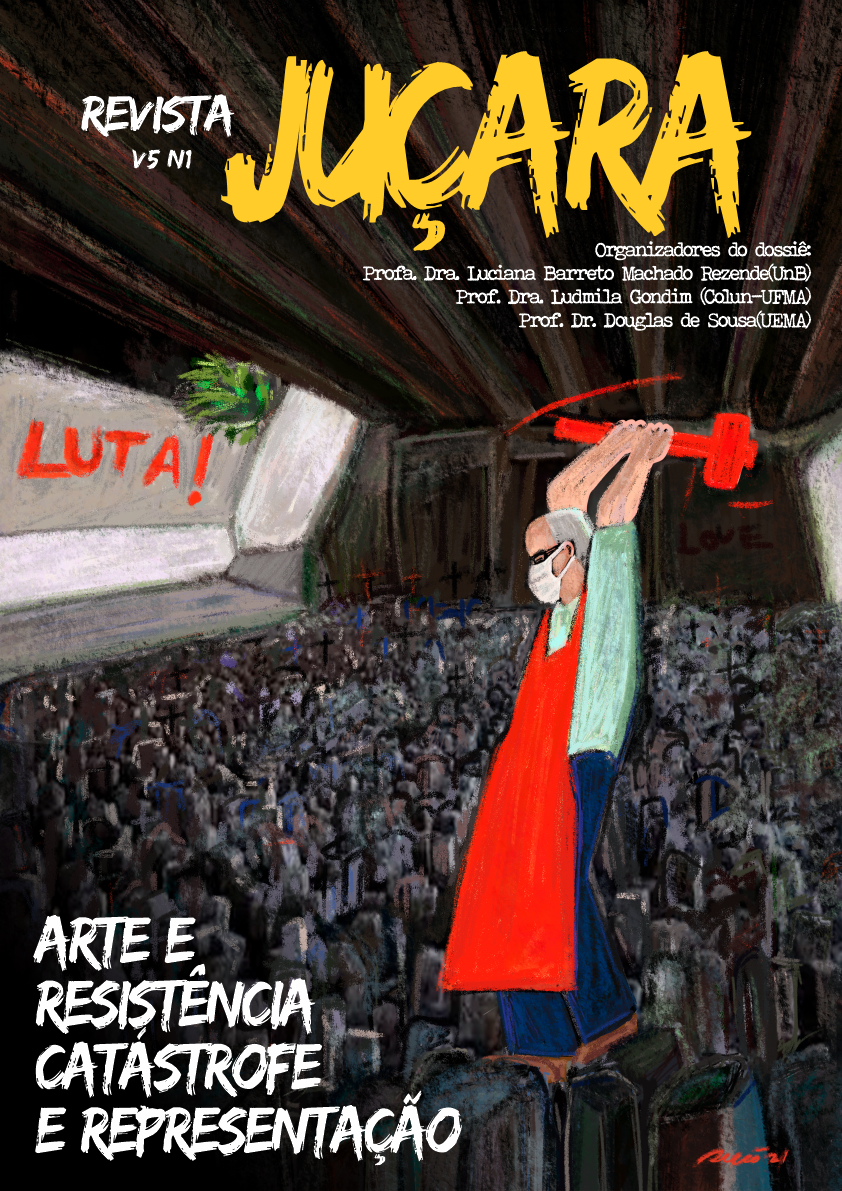“ORDEM”, DE LEUSA ARAUJO: VIOLÊNCIA SIMBÓLICA E O INSUCESSO DA BILDUNG EM TEMPOS DE DITADURA CILVIL-MILITAR
DOI:
https://doi.org/10.18817/rlj.v5i01.2568Resumo
Leusa Araujo escolheu o passado histórico da Ditadura Civil-Militar (1964-1985) como cenário para a narrativa juvenil do seu romance Ordem, sem lugar, sem rir, sem falar. Por ser uma obra voltada ao público juvenil, Leusa Araujo amplia o olhar para além da condição daqueles que sofreram a experiência física da tortura e do assassinato, abarcando os dilemas afetivos de um personagem cuja transição da infância à adolescência ocorre justamente nos anos de chumbo da Ditadura. Por isso, o objetivo deste artigo foi realizar uma abordagem crítica ao romance a partir da noção de Bildungsroman. O termo Bildungsroman surge associado à obra Os anos de aprendizado de Wilhelm Meister (1795-1796), de Goethe (1749-1832), e tem sido importante para compreensão da produção literária juvenil contemporânea, conforme estudos de Delbrassine (2006) e Cruvinel (2009). Partindo do pressuposto do caráter dinâmico do Bildungsroman (MAAS, 2000), este artigo norteia-se pela hipótese de que o romance de Leusa Araujo subverte e problematiza o processo de formação, optando pelo insucesso da Bildung do protagonista. Acreditamos que isso ocorre devido a figuração da própria memória autoritária da Ditadura Civil-Militar, de modo que para fazer a comprovação, também recorremos à noção de violência simbólica de Bourdieu (1989; 2003).
Palavras-Chave: Literatura juvenil. Leusa Araujo. Bildungsroman. Ditadura Civil-Militar. Violência simbólica.
Downloads
Publicado
Como Citar
Edição
Seção
Licença
Copyright (c) 2021 Rafael Lucas Santos Silva

Este trabalho está licenciado sob uma licença Creative Commons Attribution 4.0 International License.
A submissão de originais para a Revista de Letras Juçara implica na transferência, pelos autores, dos direitos de publicação. Os direitos autorais para os artigos publicados nesta revista são do autor, com direitos da revista sobre a primeira publicação. Os autores somente poderão utilizar os mesmos resultados em outras publicações indicando claramente a Revista de Letras Juçara como o meio da publicação original.


